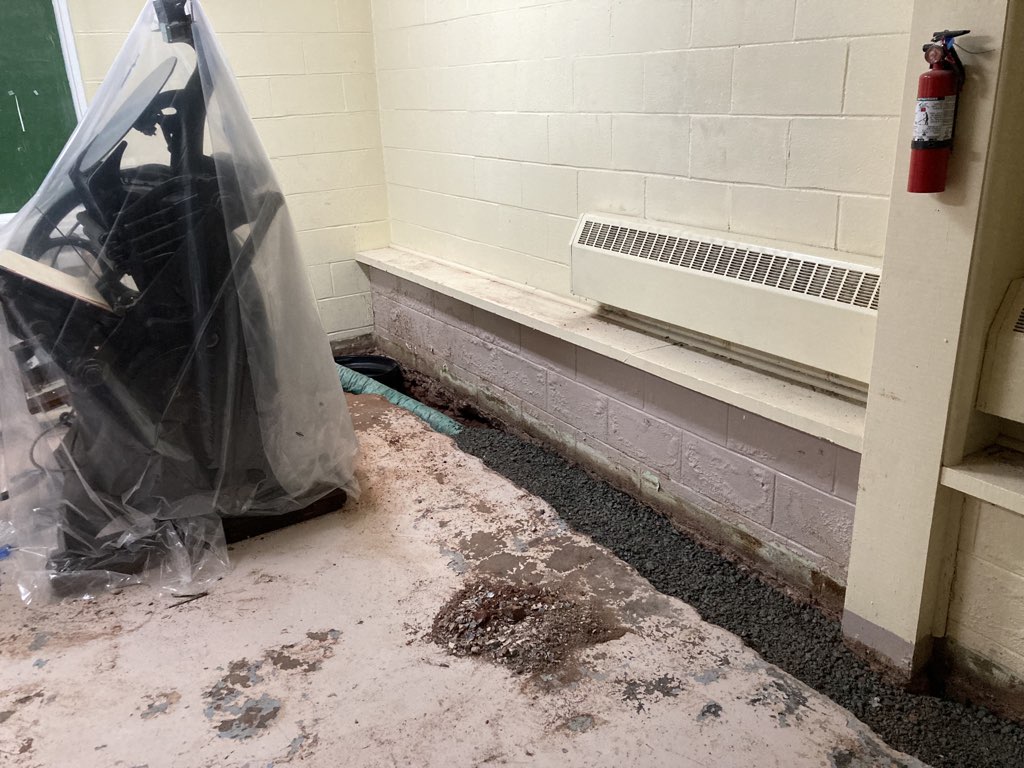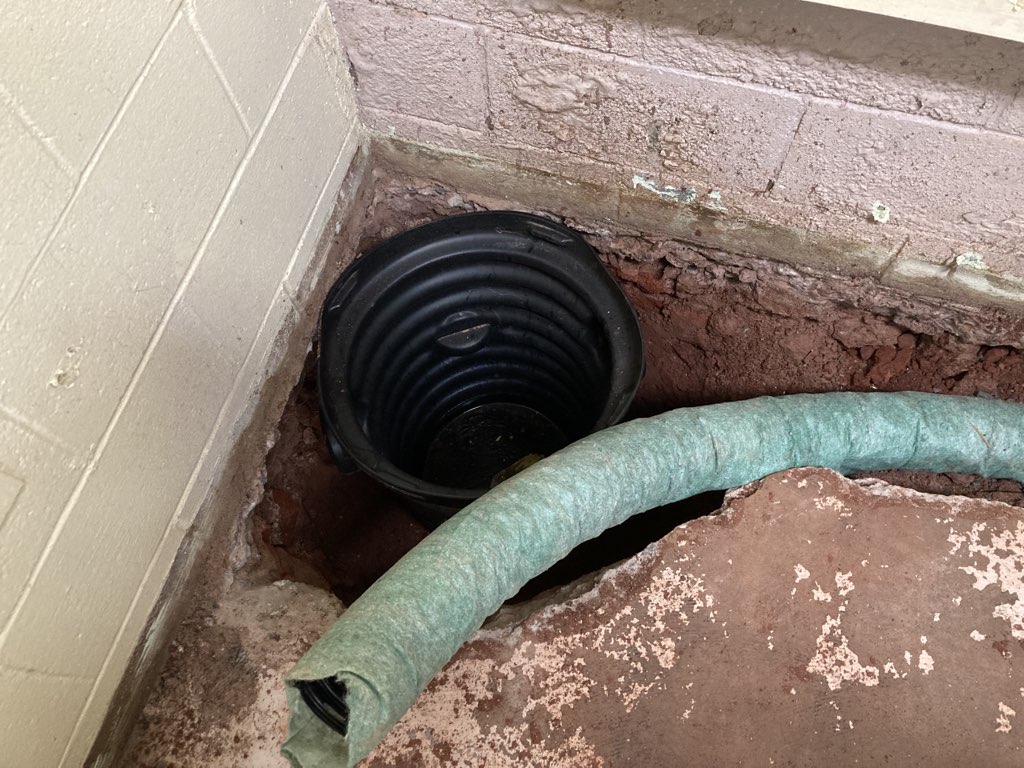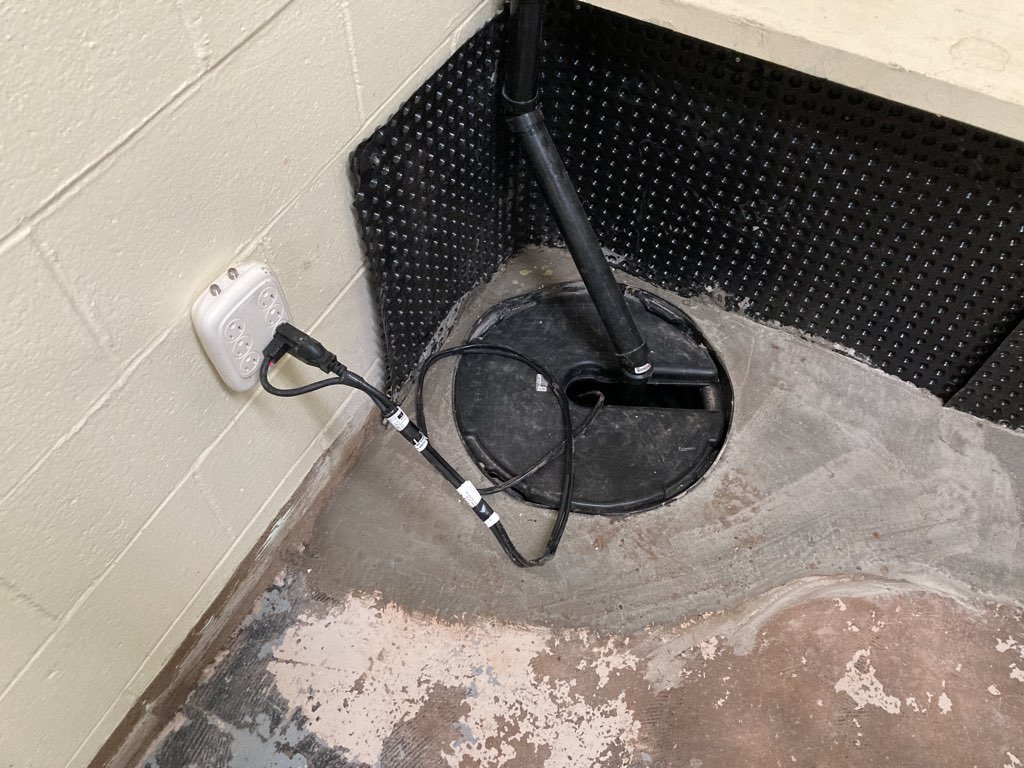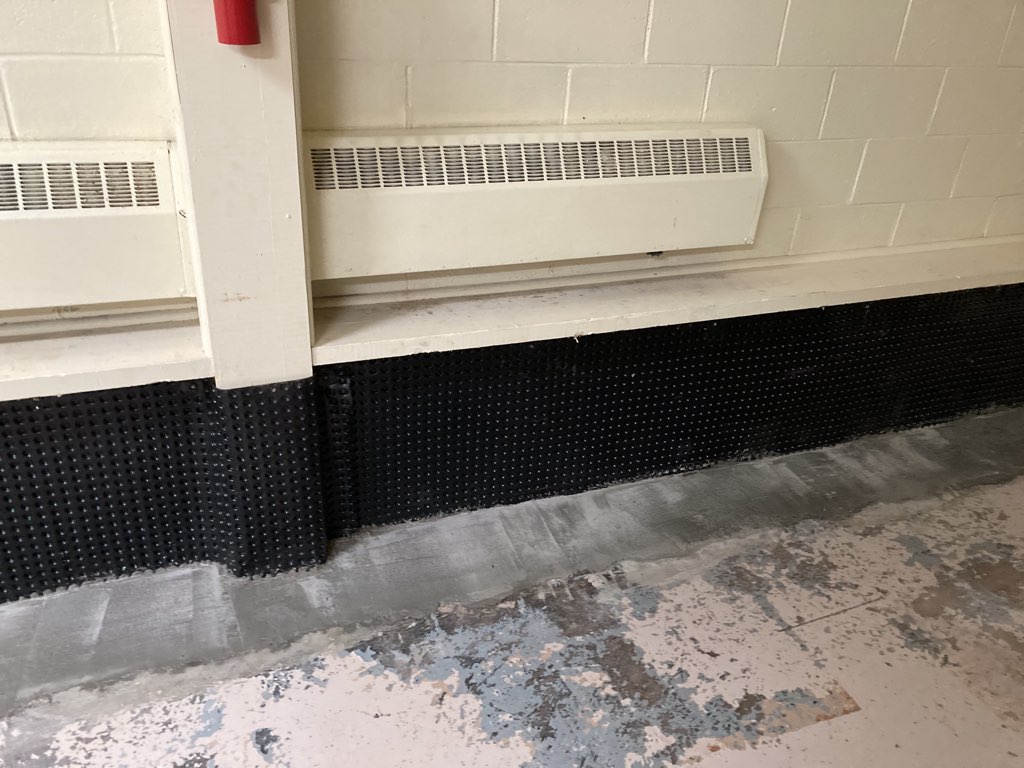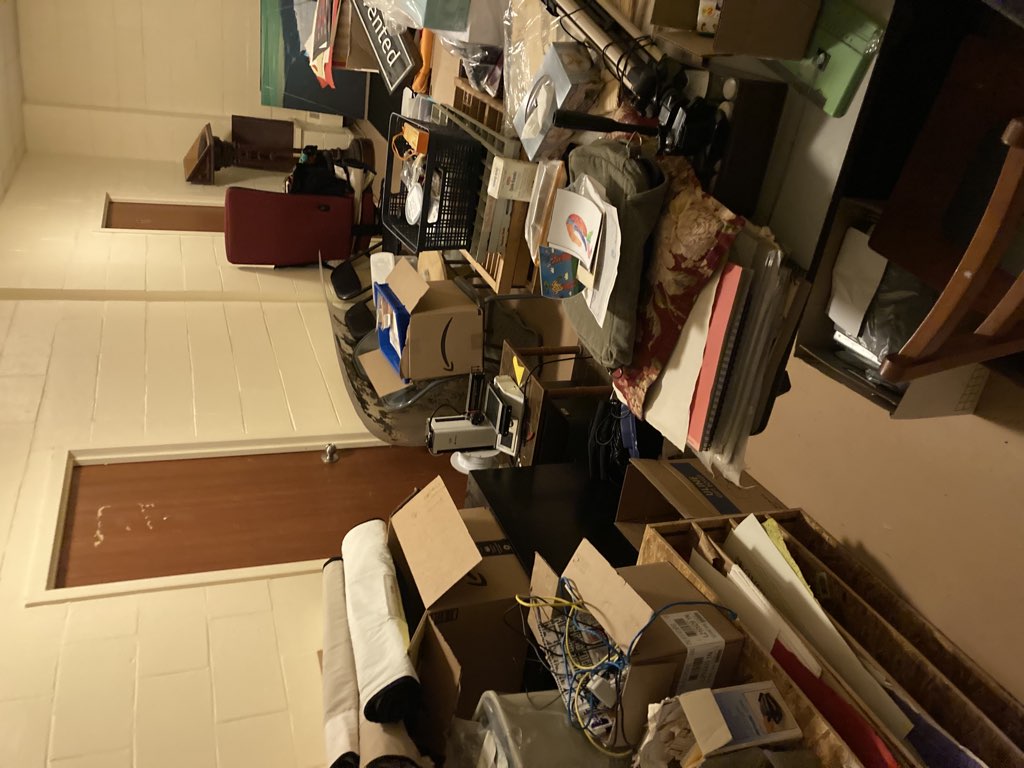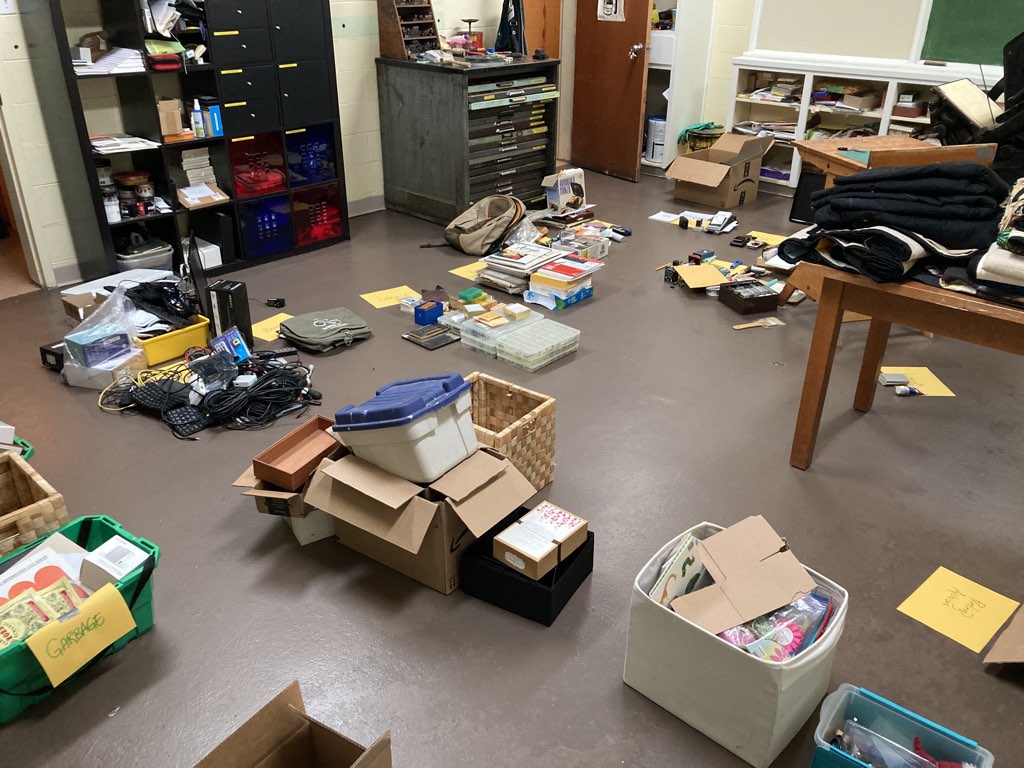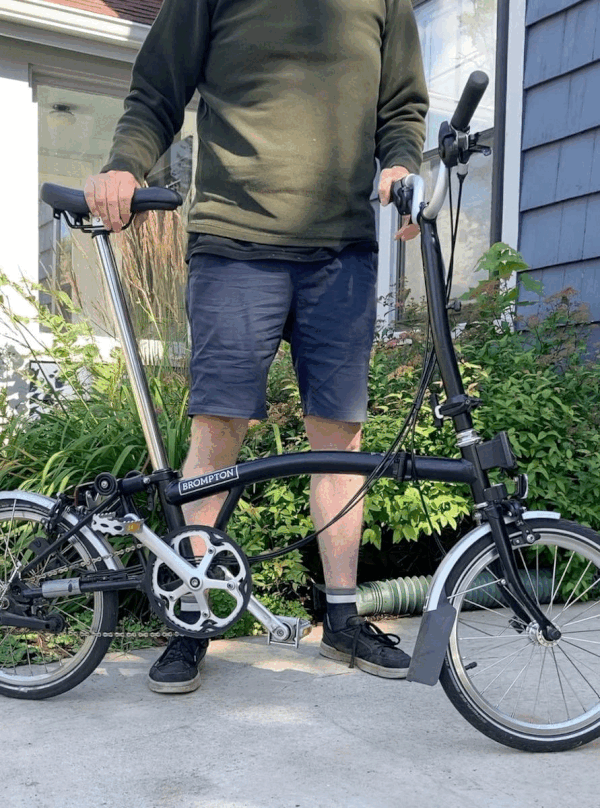A Part / To Gather / Apart / Together
A week ago my friend Martin sent an email with an notice headlined VOICE WORKSHOP and the comment “This sounds fascinating.”
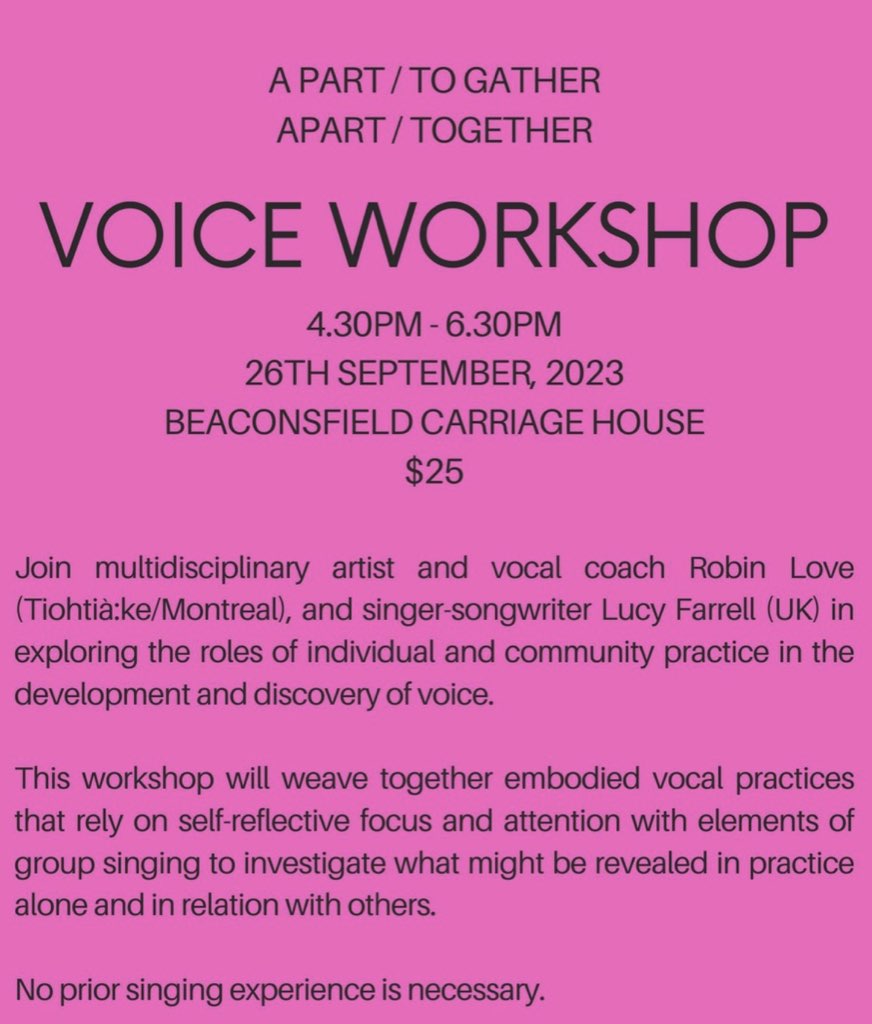
I invited Lisa to go with me, not really knowing why.
She said yes (she told me later, not really knowing why).
“I’m generally not the kind of person who attends voice workshops…” is something I might write at this point.
But I won’t.
Because now I am the kind of person who attends voice workshops.
I also perform in improv shows. I work out twice a week. I go to couples coaching. I am emerging as a version of myself who is much less afraid of things than I used to be, and so much less likely to dismiss different things as “not the kind of things I do.”
My willingness to attend, against type or not, was based on Martin’s endorsement, and an appreciation for Lucy Farrell’s talents as a musician, with an extra boost offered by witnessing one of my oldest friends embrace singing as something he can and does do regularly.
Otherwise, what happens when you “weave together embodied vocal practices that rely on self-reflective focus and attention with elements of group singing to investigate what might be revealed in practice alone and in relation with others.”? I had no idea: it’s not my language.
Here’s what did happen.
We went through an exercise to pay attention to the tension in our bodies, a body scan familiar to those who listen to guided meditations, with particular emphasis on paying attention to our breath and our throat and our voice and tensions that affect them. We did this while on our backs on the floor, breathing in silently, breathing out with a breathy vibratory “huh,” scanning, breathing, scanning. We then stood up and started to hum, while still paying attention to our breathing and to our tensions, gradually evolving from a hum to a vowel, and loosening ourselves and our tensions by doing things like tapping on our chests.
All the while I was doing this, I was in my head: “I don’t want to end up humming too loudly, but I don’t want to not make a sound at all; my breathing isn’t working; this is silly; what is a body scan anyway?; why does my lower back hurt?”. But eventually I wasn’t in my head so much, and, surprisingly, I felt purer less affected sounds coming out of me, with less effort. When this exercise was drawn to a close after about 10 minutes I was left feeling like it was twice as easy to breath than it was before, and that my “place where singing comes from” in my throat had expanded from a shrivelled passageway to an expansive cave. What a weird feeling.
After a tea break, we learned a technique to slowly memorize lyrics: read them silently, look away, read again, look away, read again; then read aloud, also three times with pauses between, then three times while projecting to a person or object in the distance, and so on.
Sleep bonnie bairny behind the castle
by by by by
thou should have a golden apple
by by by by
We memorized each line, then gathered in a circle to sing them together, over and over and over, eventually shifting from singing in unison to singing as an overlapping round.
As with the earlier exercise, I entered self-conscious and timid, and the effect of mindful repetition, in a group, led me to forget the process and relax into the song. Also a weird feeling.
We finished with Lucy singing a new song by Karine Polwart, The Stars Are Ours, written in support of the Dartmoor campaigners. We joined her on the chorus:
For the stars will not be sold
The stars are ours
It is a lovely song, Lucy’s rendition brought tears to my eyes, and it was a fitting way to end our time together.
Did we “weave together embodied vocal practices that rely on self-reflective focus”? I don’t know. But I do know that I learned something about my breathe, something about my voice, something about the corrosive effects of holding tension for as long and regularly as I have, and experienced a few beautiful moments of singing in harmony.
Martin was right: this sounds fascinating.
